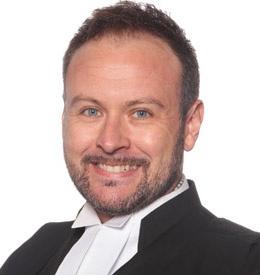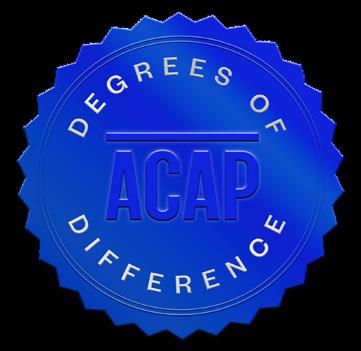





We acknowledge the Traditional Owners of the land on which the DLSS is founded, the Wurundjeri People of the Kulin Nation. We recognise their continued conntection to the land and waters We pay our respects to Wurundjeri Elders past, present, and emerging and extend this respect to Aboriginal and Torre Strait Elders and people from other communities.


EDITOR'S THANK YOU
The DLSS Industry Careers Portfolio would like to sincerely thank everyone who contributed to the production of this guide
EDITORS
Ava Conway
Emilie Young
Bailiejean Hohnberg
DESIGNER
Georgia Ward
CONTRIBUTORS
Ava Conway
Georgia Ward
Emilia Mitropoulos
William Marshall
Bailiejean Hohnberg
Emilie Young
Isabelle Schinagl
Connor Hardcastle
SPONSORED BY







Industry legal careers represent a broad and evolving landscape of opportunity for law students and graduates. Industry careers typically focus on serving the public interest, community needs, and institutional or government objectives These careers span diverse sectors and offer meaningful, impactful ways to apply legal expertise outside of the commercial setting.
It is our pleasure to introduce the 2025 Industry Careers Guide developed specifically for Deakin Law students and graduates who are seeking to understand and pursue the many vital opportunities across the wider legal landscape
Whether you are passionate about access to justice, interested in shaping public policy, or considering work within government, advocacy, or non-profit organisations, this guide is designed to help you navigate your options, prepare effectively, and see where your legal education can lead.
We are especially grateful to our sponsors for their generous support in bringing this guide to life. Their involvement not only made this resource possible, but also reflects their genuine commitment to supporting the next generation of legal professionals who will make a difference across sectors and communities Thanks to their contributions, we are able to share expert insights, career profiles, and practical advice to help you explore real-world legal pathways
We would additionally like to extend our deepest gratitude to our Sponsorship Officers, Luke Dimopoulos and Rebecca Austin, for their hard work and dedication to this guide Their efforts have been invaluable in assisting us to create partnerships that have made this guide possible.
For those seeking to apply their legal education beyond traditional roles, this guide serves as both a practical resource and a source of inspiration. Legal careers in industry are diverse, socially significant, and increasingly essential We hope it provides the clarity and confidence to pursue the path that aligns with your values, interests, and aspirations



Welcome to the 2025 Industry Careers Guide!
This publication by the Deakin Law Students’ Society aims to cover the variety of career pathways available to law students as they progress through their degrees As such, it is constructed to operate as a directory to allow all students, no matter the stage of their degree, to begin considering how they wish to utilise their law degree in the future Therefore, we encourage you to take full advantage of the valuable information within this Guide.
Overall, the Industry Careers Guide aims to provide students with pivotal information and advice from leading Industry professionals, firms and organisations. Within the Guide, you will also find an overview of numerous areas of legal practice and career pathways, alongside corresponding Deakin electives and meaningful volunteering opportunities
I hope that this Guide can adequately support all Deakin law students to determine their passions and assist them in planning for a future in legal practice Further, I hope that this publication allows all students to develop a greater understanding of career options and the pathways that can be followed in order to achieve these goals
Furthermore, I would like to thank my wonderful officers for their hard work and dedication in bringing this guide to life: Emilia Mitropoulos, Georgia Ward and William Marshall I would also like to extend my gratitude to the Sponsorship portfolio for their support and guidance throughout this process, namely Samantha Pauliuk, McKeely Hol, Luke Dimopoulos and Rebecca Austin Without all of these dedicated individuals, the Industry Careers Guide would not be possible!
Finally, I hope that the Industry Careers Guide opens your eyes to the plethora of career options available, and as such, the Industry Careers team wishes you all the best in your future endeavours.


Dr Colin Campbell
CAN YOU PLEASE TELL US ABOUT YOUR PATHWAY TO BECOMING A LECTURER AT DEAKIN LAW SCHOOL?
I am currently a Senior Lecturer at Deakin Law School where I teach Administrative Law and Torts. I commenced my career working as an articled clerk, and then a solicitor at a large commercial firm, where I was a Banking Lawyer(!) I then worked as an associate to a Judge of the Federal Court of Australia for a couple of years, before undertaking an LLM, and then a PhD in Administrative Law, overseas. I then worked at Monash for a number of years, before coming to Deakin
WHAT ATTRACTED YOU TO COMPLETING YOUR POST GRADUATE STUDIES IN ADMINISTRATIVE LAW?
My experience as an associate to a Federal Court Judge encouraged me to undertake post graduate studies in Administrative Law A significant proportion of the matters heard by Federal Court Judges are applications for judicial review under different pieces of legislation – for instance, the Migration Act, the Social Security Act, and the Tax Act I found the idea that the government should be required to comply with the requirements of the law, just as much as are ordinary citizens, compelling. I also found the extremely wide range of enactments under which decisions are made (which are then subject to judicial review applications) very interesting
WHAT SKILLS AND QUALITIES WILL HELP SOMEONE SUCCEED IN A CAREER IN ADMINISTRATIVE LAW?
Some administrative law practitioners are “generalists” in the sense that they will advise clients about the legality of decisions made under a whole range of different pieces of legislation, and challenge or defend those decisions For generalist administrative law practitioners, the ability to quickly understand the requirements of a particular piece of legislation is very important By contrast, some administrative law practitioners specialise in providing advice with regard to, and challenging or defending, decisions made under a particular piece of legislation – eg the Tax Act, or the Migration Act. For those practitioners, having an extremely in-depth knowledge of that particular piece of legislation, and the cases that have been decided with regard to it, is very important
WHAT EXPERIENCES DO YOU RECOMMEND FOR STUDENTS HOPING TO PURSUE A CAREER IN ADMINISTRATIVE LAW?
Assuming that students begin their careers as solicitors, working for a firm that has a “government law” practice – and working as part of that practice - would be very helpful Although not all the work undertaken in such a practice would involve administrative law –for instance, contract would probably be a large component - a deal of it would. And, of course, working as a solicitor for the Victorian Government Solicitors Office, or the Australian Government Solicitor, would provide the opportunity for a young lawyer to have exposure to administrative law.
WHAT IS THE MOST COMMON TYPE OF WORK WITHIN THIS PRACTICE AREA?
Probably the most common type of work within this practice area is challenging or defending governmental decisions in merits review bodies – like, for instance VCAT (or the soon to be abolished Commonwealth AAT).
Criminal law goes well beyond what is depicted on television shows like Law and Order and How to Get Away with Murder It encompasses a wide range of legal matters and offers rewarding career opportunities for those interested in upholding justice. Various organisations, including the Victorian Government Solicitor's Office, Victoria Legal Aid, and the Office of Public Prosecutions, provide clerkship positions to penultimate students, which can pave the way for future graduate roles in criminal law.
A typical criminal case involving an indictable offence progresses through multiple stages: criminal investigation, charging of the individual, bail application, committal hearing, trial, sentencing, and appeals Defence lawyers play an integral role in the case from its early stages, ensuring procedural fairness during questioning On the other hand, prosecution's involvement begins once an individual is charged with a crime.
To excel as a criminal lawyer, the ability to think quickly and evaluate information effectively is crucial. Additionally, working with emotionally distressed individuals is a significant aspect of this role, necessitating strong listening and communication skills
If you're interested in learning more about careers in criminal law, we invite you to listen to the DLSS' Before the Court Podcast
VOLUNTEERING OPPO
Brimbank Melton Community Legal cen First Step Legal Servi Fitzroy Legal Service Inner Melbourne Com Law and Advocacy Ce
CORRESPONDING ELE
MLL420/MLJ739 - De

Ben Watson
CRIMINAL LAWYER & ACCREDITED CRIMINAL LAW SPECIALIST
WHAT WORK DO YOU MOST OFTEN COMPLETE IN YOUR JOB AS A CRIMINAL LAWYER?
On a daily basis I act for individuals charged by Victoria Police with a range of criminal offences such as assaults, theft, drug possession and trafficking, firearm offences, sex offences, dishonesty offences, and traffic offences. I also act on behalf of people charged with regulatory offences by bodies such as Local Councils, Worksafe, RSPCA, and Transport Safety Victoria
I routinely have appointments with new clients to obtain instructions, assess the brief of evidence, and provide advice to clients on potential defences that are available and sentencing outcomes depending on a plea of guilty or not guilty.
I commonly brief psychiatrists and psychologists for reports on potential defences of mental impairment or fitness to stand trial. I negotiate charges with police prosecutions through summary case conferencing. I commonly draft written submissions for plea hearings which are provided to the Court
I appear in the Magistrates Court on a daily basis on behalf of clients in a range of hearings such as Mentions, Contest Mentions, Contested Hearings, Plea Hearings, Bail Applications and Intervention Order proceedings.
WHAT OPPORTUNITIES DO YOU RECOMMEND STUDENTS PARTICIPATE IN IF THEY WANT TO GAIN EXPOSURE TO THIS PRACTICE AREA?
I highly recommend obtaining office experience at a law firm as early as possible; it doesn’t have to be a criminal law firm, either, as many skills are transferrable, roles such as a receptionist or paralegal where you can become exposed to the different tasks that are required of solicitors It is also where you can be exposed to different clients and solicitors who may approach cases differently. Through this experience you can network with a wide variety of people and opportunities will present themselves into the future
I recommend reaching out to Barristers which practice predominately in criminal law and see if they have any opportunities for shadowing or acting as a research assistant
Volunteering with organisations which assist people in the areas of homelessness, drug addiction, youth work or mental health would provide a great skillset learning to work with people from a diverse background and to understand the underlying issues that bring people into the criminal justice system.
Participating in moots are also incredibly valuable, learning advocacy, thinking on your feet and developing a case strategy are all incredibly important skills to learn as a criminal lawyer
The skills and attributes required to succeed include a passion for assisting people and advocating fearlessly on their behalf, the ability to prioritise and re-prioritise tasks, time management skills, ability to communicate with a wide range of stakeholders, flexibility and an openness to ever changing legislation, ability to work under pressure and within time constraints, analytical and strategic thinking skills, problem solving skills, written and oral advocacy skills, and the ability to communicate and manage a range of different clients who are commonly experiencing great stress or other underlying issues
Ben Watson
LAWYER & ACCREDITED CRIMINAL LAW SPECIALIST
The biggest misconception is that many of your days will involve large victories with acquittals and media attention; where 90% of clients plead guilty in the Magistrates Court, the victories experienced are generally smaller in that you may have some key charges withdrawn or amended, or your client is sentenced without conviction, or the sentence imposed is better than expected or a diversion is granted.
It is important to take these little victories when you can and understand that you are generally trying to make the best of a bad situation for a client, who is experiencing possibly the most stressful time in their life and that you are an important part of this process to ensure somebody’s liberty or future prospects of education, employment, or travel are maintained.
WHAT INITIALLY ATTRACTED YOU TO WORK IN THIS AREA, AND WHAT DO YOU FIND MOST CHALLENGING ABOUT THIS PRACTICE AREA?
I have always been interested in the criminal law, particularly advocating on behalf of clients in Court I was attracted to the ability to advocate on behalf of clients and protecting their interests against the vast resources of the state and sharing their life story to the Court in a persuasive and compelling way
I was particularly attracted to assisting young people who have been charged following a once off mistake and ensuring that their life is not impacted through a conviction; young people can sometimes make mistakes and ensuring that they are not punished for the rest of their lives due to these mistakes is extremely important to me.
The most challenging part of the practice area is that many clients that I act for have similar issues which aren’t addressed at a broader level in society, and therefore people fall through the cracks into the criminal justice system Homelessness, unemployment, mental health and drug addiction issues are so common in criminal law and if significant resources were aimed towards these particular areas, court and prison resources would be saved in the process
Another challenge is the range of different pressures, particularly when acting for clients in custody, there is pressure to obtain bail or to be acquitted, client’s families can also place pressure on you as well as the Court with time constraints, delays and procedural issues that arise. There is also the pressures of a large and varied workload, with competing priorities where each case deserves due care and attention at all times
DO YOU RECOMMEND ANY BOOKS, PODCASTS ETC. FOR STUDENTS TO READ/LISTEN TO IF THEY WANT TO LEARN MORE ABOUT THIS AREA OF LAW?
I recommend the following podcasts –Williams and Lonsdale – Greens List
The Wigs
Naked City
The Felon Show
Killer Cross Examination
The Dark Money Files
Life and Crimes with Andrew Rule
I highly recommend becoming familiar with the Judicial College of Victoria Charge Books and Sentencing Manuals, they are an invaluable resource.

WEBSITE - https://fortefamilylawyers com au/
LINKEDIN - https://www linkedin com/company/forte-family-lawyers/
EMAIL - enquiries@fortefamilylawyers com au
Forte Family Lawyers is the largest boutique family law firm in Victoria. Our team of professional Family Lawyers give strategic advice and representation, drawing upon our extensive experience and knowledge. We provide pragmatic solutions and personalised service and care.
Excellence: There is a commitment to providing high-quality legal work and excellent client service
Experience: A determination to build on our fundamentals, with a desire to do appropriately challenging work, including in new and different areas of family law
Expertise: A dedication to continuous learning, including keeping up-to-date through ongoing continuing professional development with changes in family law, the social sciences and the many areas of law which affect families, such as family violence, bankruptcy, superannuation, tax, wills and estates, contract and property law
Enjoyment: A culture where employees work together harmoniously and enjoy their roles and their workplace We also prioritise flexibility to cater for individual circumstances
Ethics: We maintain high standards of ethical practice.
One of our Partners, Jacky Campbell, recently presented to 1700 family lawyers across Australia about the amendments to the Family Law Act taking effect from 10 June 2025
3 of our 5 partners are Fellows of the International Academy of Family Lawyers, a worldwide association of practising lawyers recognised by their peers as being the most experienced and skilled family lawyers in their respective countries
Children and Parenting
Defacto Separation
Property and Financial Settlements
Child Support and Spousal Maintenance
Complex Financial Structures
Dispute Resolution
Divorce
Family Violence
International Family Law
Pre-Nuptial and Other Financial Agreements
Same Sex Relationships
Superannuation
YES!
Whilst we do not have a specific Graduate/Legal Traineeship program, we employ law students in research/administrative, graduate or legal assistant roles on an 'as required basis’. We are constantly on the lookout for talented and passionate law students/graduates to join our Melbourne team

The family law system in Australia provides assistance to individuals in resolving legal aspects related to their family relationships It encompasses a wide range of issues, including family relationship breakdowns, divorces, emancipation, child support, property settlements, and more One of the primary objectives of family law is to encourage parties to reach agreements and resolve their legal matters without resorting to court proceedings In the context of married and de facto couples, family law is primarily governed by the Family Law Act 1975 (Cth), and most cases are heard in either the Family Court of Australia or the Federal Circuit Court of Australia However, matters pertaining to adoption and child protection are governed by state legislation.
Working in family law requires a diverse set of skills Family lawyers need to be proficient in litigation and dispute resolution practices. They often deal with emotionally charged situations involving broken families, requiring them to separate their personal emotions from their legal work in order to provide the best possible assistance
Family violence is a significant aspect of family law Family lawyers play a crucial role in working with clients and professionals to navigate the complexities of the family violence system. In addition to having in-depth knowledge of the law, professionals working in the family violence sector require a comprehensive understanding of the unique psychological dynamics involved in such cases This understanding enables them to effectively address and manage the complexities of family violence matters.
The field of family law continually evolves, and practitioners must stay up to date with legal developments and best practices. By honing their litigation and negotiation skills, family lawyers can navigate the intricacies of family law cases and support their clients in achieving fair and sustainable resolutions
Family law plays a vital role in helping individuals and families navigate legal challenges and find resolution in various aspects of their relationships Skilled family law professionals provide essential guidance, support, and advocacy to clients during these often emotionally challenging times
Brimbank Melton Community Legal Centre
Djirra
First Step Legal Service
Fitzroy Legal Service Law and Advocacy Centre for Women
CORRESPONDING ELECTIVES
MLL320 - Family Law
MLJ712 - Family Law and Policy
MLL420/MLJ739 - Deakin Law Clinic

























Environmental law refers to those laws that are designed to protect the environment More specifically, it’s a collection of treaties, regulations, statutes, conventions and case law that governs how humans interact with their environment. Its purpose is to protect the environment and create rules for how people can use natural resources It not only aims to protect the environment but regulates pollution, the use of natural resources, forest protection, mineral harvesting and animal and fish populations.
Environmental lawyers engage with various issues addressed by environmental law, ranging from implications of major project applications, biodiversity protection, pollution control and waste management You’ll have an opportunity to work with a range of non-legal professionals, including architects, ecologists and archaeologists and make use of their expert opinion and reports. Not only that, you’ll work with an extensive number of stakeholders that entail environmental cases, including the government, local policyholders, businesses, advocacy groups and indigenous people
Environmental Justice Australia
Australian Earth Law Alliance
MLL426 - Mining and Energy Law

Succession planning, also known as wills and estates law is rapidly gaining popularity and prominence, primarily due to Australia's ageing population Lawyers practicing in this field offer a range of services related to estate planning and administration. They guide individuals through the necessary procedures, address potential issues, and assist in preparing for any litigation that may arise in the context of estate disposal Wills and estates lawyers primarily work with succession law, trusts, property law, and taxation law.
Solicitors specialising in wills and estates assist clients in drafting wills and trusts, appointing powers of attorney, designating enduring guardians, and creating other essential documents for the administration of their estates after their passing or during periods of incapacity In order to achieve these objectives, these solicitors may help clients conduct audits of their assets, ensure appropriate provisions for beneficiaries, and securely store their wills Additionally, they provide assistance to executors in distributing assets and offer counsel and representation in cases where someone passes away without a will (intestate), or when there are disputes over existing wills or estates.
Working in wills and estates law requires a comprehensive understanding of legal intricacies and a high level of attention to detail. Lawyers in this field play a crucial role in safeguarding their clients' wishes, ensuring that their assets are appropriately managed and distributed according to their intentions They provide valuable guidance throughout the estate planning process, helping individuals make informed decisions to protect their legacies and provide for their loved ones
As the field of wills and estates law continues to evolve, practitioners stay updated with legal developments, changing taxation regulations, and emerging practices to better serve their clients' needs By providing expert advice, drafting accurate documents, and offering guidance during complex legal proceedings, wills and estates lawyers help individuals navigate the complexities of estate administration and provide peace of mind for their clients and their families
Southport Community Legal Service
MLL362 - Succession Law
MLJ741 - Succession Law and Policy

Nicholas Plummer
SENIOR ASSOCIATE
IN YOUR PRACTICE AS A SUCCESSION PLANNING LAWYER, WHAT WORK DO YOU MOST COMMONLY COMPLETE?
Estate planning involves the preparation of wills and powers of attorney for clients which sets out how they want their affairs to be managed when they lose capacity or pass away, and how they then want their assets to be divided It also involves providing the clients with advice regards to the various options that are available to them to protect their assets for their children and grandchildren and to minimise or take into account any tax issues, issues with former partners or estranged children and the like
A competent estate planning lawyer will of course be familiar with the law regarding wills and probate, but should also have an understanding of capital gains tax, superannuation, land law including land tax and stamp duty, and a general knowledge of family law and how assets are treated in the breakdown of a de facto relationship or marriage In addition to understanding the legal concepts, a good estate planning lawyer will be a good problem solver. Being able to formulate a plan that fits within the legal concepts is important.
Many people believe that estate planning is simply preparing a will and filling out documents. It is, of course, more than just preparation of the document. You need to listen to what the clients want, consider what might happen in the future, then advising the best way to achieve their goals It is then important that the will is properly drafted Issues can easily arise in complex matters if a document is not clearly drafted, leaving gaps in the plan. This can come back to haunt the lawyer if their advice or drafting wasn’t accurate
The most challenging aspect of this area can also be the most rewarding. Often clients have an end goal that is difficult to achieve and will take lateral thinking to find a solution, and sometimes gentle persuasion of clients to understand that something they want cannot be achieved or there is a more detailed way to go about it. Most people will want a will to protect their assets, many won’t understand the concepts, having the patience to explain concepts to clients in lay terms can also be difficult at times
This area of law I would say starts off transactional, but it can very quickly become litigious When you’re dealing with complications such as blended families or estranged children,combine it with some grief and money, it doesn’t take much for people to become upset and to issue proceedings challenging a will being distributions from the state. It is very much an area of law where you need to be considering what the worst-case scenario could be when providing advice and drafting documents
Cyber and technology law is a rapidly expanding field that encompasses various aspects of intellectual property, cyber security, criminal law, and commercial law As society becomes increasingly reliant on technology, there is a growing demand for legal professionals with expertise in this area Deakin University now offers a double degree program in Law and Cyber Security, providing students with a comprehensive foundation However, even if you're not enrolled in this specific course, you can still enter the industry by pursuing coding or cyber security short courses or certificates alongside your studies
Technology law places significant emphasis on privacy and data protection. Given the wideranging impact of these issues, legal professionals in this field work with diverse clients, including individuals, companies, government agencies, and defence organizations They provide assistance and guidance in navigating the complex landscape of privacy regulations and data management
In recent years, there has been a particular focus on the privacy and data security of lawyers themselves As legal professionals deal with highly confidential information, they have become prime targets for cyber-attacks Protecting the privacy and safeguarding the data of legal practitioners has become a crucial area of concern.
By specialising in cyber and technology law, legal professionals have the opportunity to address emerging legal challenges in the digital era. This includes issues related to intellectual property rights, data breaches, cybercrime, privacy regulations, and the legal implications of technological advancements
As technology continues to advance, the demand for skilled cyber and technology lawyers will only increase By staying updated on the latest developments and acquiring relevant skills, legal practitioners can effectively navigate the complexities of this dynamic field and provide valuable expertise to client
MLL444/MLJ735 - Data Law, Pri

Human rights law is a largely pro-bono field of law that aims to advocate for vulnerable people whose intrinsic rights are being impeded on This area can vary from labour rights to refugee and migration law, all with the focus on protecting people and their rights.
Australia, unlike many other countries, does not have a bill of rights, so most of the rights afforded to Australians are sourced from the Constitution, ratified treaties, legislation, and common law
A crucial skill required in human rights law is to have an understanding of international law. As a Human Rights lawyer, you utilise knowledge of how treaties entered into by Australia impact the rights of Australians
Having an interest in social justice causes can be a motivating factor for professionals in this discipline, so staying up to date in current affairs and events is important Some lawyers involved in human rights law may also advocate for policy change to better protect these rights so having experience in policy and advocacy may also be helpful in this area There is no clear path to a career in human rights law, but many lawyers begin by undertaking internships volunteering with human rights organisations, or taking on pro bono cases once they are established in other areas
Refugee Council
Asylum Seeker Resource Centre
Human Right Law Centre
Liberty Victoria
CORRESPONDING ELECTIVES
MLL302 - Human Rights Law
MLJ733 - Human Rights Law and Policy
MLL394/MLJ730 - Migration and Refug

Competition law aims to promote fair trading and protect consumers, businesses, and the economy from anti-competitive trade practices The law prohibits conduct such as cartels, price fixing, misuse of market power, exclusive dealing, and anti-competitive mergers. It aims to ensure businesses compete on their merits rather than through unfair advantages or collusion Specific provisions of the Competition and Consumer Act 2010 (Cth) regulate sectors such as telecommunications, energy, and banking in order to maintain open markets. Companies and individuals may seek compensation for harm caused by anti-competitive conduct Penalties for breaches can include fines or other court-ordered remedies
Competition law sits at the intersection of legal principles, market regulation and economic theory, thus, if you are interested in economics or working for the government you may find competition law appealing. Working in this area can involve advising companies and businesses, litigating anti-competitive conduct, or developing public policy Roles in government agencies like the ACCC allow solicitors to directly influence market structures and uphold the public interest. If you are passionate about economic policy and regulatory enforcement, competition law may offer you a dynamic and impactful career path
MLL409/MLJ718 - Competition Law and Policy

Migration law entails a variety of career possibilities, from being a migration lawyer, a member of the Department of Home Affairs, to a human rights lawyer specialising in helping refugees and asylum seekers. In these roles, you will be working with people who are seeking to migrate to Australia and obtain a visa for this purpose There are numerous different types of visas available, and each is designed for different purposes of entry, including to work, to live with a partner or family member, to study and each has different conditions which must be satisfied for the client to be granted and keep their visa A migration lawyer’s job is to help them navigate these often complex conditions and apply for and maintain their visas Alternatively, a lawyer interested in social justice and the rights of refugees may work to represent refugees in court, give legal advice, help them complete immigration paperwork and other related tasks These lawyers may work with private law firms, non-governmental organisations and international organisations.
Under the Migration Act 1958, anyone who uses, or purports to use, knowledge of, or experience in migration procedures to provide advice or assistance must be registered as a migration agent Practicing lawyers are no exception – they must obtain a Migration Agent’s licence separately from their legal practicing certificates before they can advise clients on their visa options and lodge visa applications on their behalf. Migration Agent’s licence entails several requirements which must be satisfied, which can be found in the Office of the Migration Agents Registration Authority (MARA)’s website: mara gov au
Want to hear more about careers in migration law? We’d recommend that you check out the DLSS Before the Court Podcast We have recorded an interview podcast with Maria Jockel, an experienced immigration lawyer who offers invaluable information on all aspects of immigration and citizenship law
Numerous organisations (particularly relating to refuge seekers) run primarily through help from volunteers, an accept student volunteers. Some such organisations includ
Refugee Legal
Refugee Advice & Casework Service (RACS)
Refugee And Immigration Legal Service
Asylum Seeker Resource Centre (ASRC)
CORRESPONDING ELECTIVES

Most people would think that property law only concerns real property (land) However, it also includes personal property such as chattels, and even intellectual property Native title is also covered by the area of property law.
Property law is a broad area of law, meaning all different types of firms specialise in this area. Property law is seen in small boutique suburban law firms who mainly deal with conveyancing, right to top tier firms
Property law is governed in Australia by the utilitarianism belief that those who own property should continue to improve it, to improve society This is reflected in the legislation for property law Property law ensures that everyone is able to have their rights protected, and benefits those who try to benefit society.
Want to hear more about careers in property law? We recommend that you check out the DLSS' Before the Court Podcast. We have recorded an interview with Erin Ritchie, a lawyer in the property law team at Corrs Chambers Westgarth

Rachael Baker
ASSOCIATE
CAN YOU PLEASE PROVIDE AN OVERVIEW OF THE TYPE OF WORK YOU MOST COMMONLY COMPLETE AS A TRAINEE LAWYER?
My traineeship has provided me with experience in many areas of law; however, I commonly practise in Property Law. A typical day in this area of law can range from a residential conveyance, through to drafting and negotiating a complex commercial development contract We are often resolving property disputes, discussing the implications of holding property in certain capacities to consider federal and revenue taxes, considering trust and estate holdings to maximise future benefits, together with working with other authorities in environmental law and planning developments
I had a slightly different entry into the world of law and property after taking a summer job at a small conveyancing firm between finishing school and starting my biomedical science studies During my undergraduate degree, I found that I had a keen interest at my job in property law and the overhaul of the industry while it moved to electronic conveyancing. In my final year of biomedical science, I was more drawn to the policy side of the subjects rather than the science and I knew that I had to pursue a post-graduate in this area A mix of my gained professional skills and genuine interest in policy led me to the Juris Doctor at Deakin University My favourite and most successful studies were contract law, property law, and land law, together with trusts and equity I thoroughly enjoyed the policy insight that the Juris Doctor provided as it enabled a greater understanding of the context in which laws are created and how they are a response to our communities social, economic, and political issues After spending some time in a member support consulting role at PEXA, I decided it was time to pursue practising the law and knew that property law was my niche given my past experiences and professional passions I enjoy that property law often has a tangible outcome, in that for example, after a successful settlement, clients reap the benefits of your work in enjoying the legal security of their new home. I appreciate ongoing learning opportunities and like the diversity and challenges that property law can give in relation to problem solving and strategising on behalf of a client Often successfully developing a strategy is underpinned by your policy knowledge and ability to use that to your client’s advantage Ultimately, I enjoy this area of industry as it gives the opportunity to help clients achieve their goals
I was fortunate to learn some foundation skills of this area at the conveyancing firm to which eventually transitioned into a Senior role, however it is an industry where colleagues genuinely collaborate to get the mutually successful outcome for clients Given this, I would recommend if you are interested in this area to reach out to local property law firms to see if you could spend some time with either their in-house conveyancer or for more variety, their property lawyer, as I think it would be beneficial to gain insight into the every-day running of their files and the challenges that are overcome Additionally, participating in any University events to build up your confidence and networking is invaluable. Joining societies and attending the extra-curricular events (which I know can be daunting and time-consuming) can present opportunities where you are with like-minded professionals, gaining an insight into this area and possibly an opportunity for a professional position. There are some PEXA based events that will give you a good overview of their role in the industry of conveyancing, together with industry partners like Stewart Title who will discuss liabilities and risks in purchasing property that are for the every-day consumer.
Rachael Baker
ASSOCIATE
Depending upon the scale of work you are doing, negotiation skills can be required in litigation-based matters or securing a deal on behalf of your client. You need to take complete instructions and anticipate your clients needs as it can be a fast-paced industry where being pro-active can be the difference in successfully finalising a complex matter As always, attention to detail is required due to the complexity of legal contacts and documents and understanding the practical obligations that these may place on your client Time management! Tight deadlines in this industry means you need to be able to diligently manage your time between matters and prioritise appropriately to deliver quality work.
Arguably the biggest misconception about property-law is that people think it is boring paperwork, limiting and procedural. I’d argue that like any area of law, it requires a keen eye for detail, the ability to solve problems, an organised file and a passion for seeking a genuine outcome for your client There is more to property law than conveyancing, and although the demand for conveyancing is high given the real estate movement in Australia, this is only one small part of property law Property law intersects with environmental and planning law, land use and urbanisation, revenue taxes and finance law, managing risks when developing property, the list goes on! I’d encourage people to think about the intersection of this industry with our every-day lives and how as a professional in this industry we have an important role to play in promoting responsible and sustainable practises in developing our environment to ensure access, inclusivity, and safety for all.
Intellectual property is the law surrounding the ownership of ideas This covers a wide range of fields, from trademarking logos of businesses and artists, to patents of medical breakthroughs, focusing on providing recognition and financial gain for the person establishing the idea
Intellectual property largely takes three forms: copyright, trademarks, and patents.
Copyrights are rights provided to authors/creators of artistic and literary work which can take the form of a book, painting, or song for example.
Trademarks protect a sign or symbol that acts to distinguish a good or service from other enterprises.
Patents are rights attached to an invention that allows the inventor to determine if and how the invention can be used by others.
This area of law is strongly linked to property law so, while it isn’t necessary, having an interest in property law may be a good indication you may enjoy intellectual property. Due to the wide-reaching nature of intellectual property law, working in this area allows you to with either individuals or corporations
MLL337 - Venture Law Clinic
MLL351 - Legal Internship (at Madison Branson Lawyers)
MLL410 – Intellectual Property
MLJ719 - Intellectual Property and Policy



Entertainment law (also referred to as media or arts law) is an amalgam of laws that apply to the entertainment industry It covers an area of law which encompasses various types of media (television, advertising, video games, theatre, music, movies, print media, and other forms of publication)
Legal professionals working in this field could expect to engage legal issues that relate to the operation of the entertainment industry, which include intellectual property, employment, contract, torts, defamation, criminal, tax, insurance, and privacy laws
Most of the work carried out will be transaction-focused (for example contract drafting, negotiation, and mediation)
Want to hear more about careers in entertainment / arts / media law? Check out the DLSS' Before the Court Podcast We have recorded an interview with David Vodicka covering his career as a Partner at Media Arts Lawyers.
Arts Law Centre of Australia
Find out more at: www.artslaw.com.au/support/volunteer

WHAT ATTRACTED YOU TO PURSUE A CAREER IN THIS PRACTICE AREA?
The thought of listening to music as part of my job, and representing and hanging out “backstage” with musicians day-to-day was far too exciting not to pursue The reality is somewhat different of course (lawyers do not often get invited backstage…) but to be involved in a creative industry that has such an impact on pretty much everyone’s lives, and to work with some incredibly talented and inspiring people makes the long hours all the more worth it!
WHAT STEPS DID YOU TAKE EARLY IN YOUR CAREER TO ESTABLISH YOURSELF IN THIS FIELD?
As an obsessed musician and music fan, the penny dropped when I received some career advice during my university days that you should try and marry your vocation with your passion An online search later revealed the music industry needed lawyers and I was off
Contacting local law firms who specialised in the area whilst still studying – there were only a couple – I was quickly told thanks, but no jobs I realised the more niche the area and the more exciting the area of law, the less jobs there were available This happened repeatedly for around 5 years and it was not until I had gained some litigation and general commercial law experience that I was ready There were no jobs locally so I took myself off to London where an intern role got my foot in the door I then worked incredibly hard to ensure I knew everything about the industry and everyone in the industry, in an effort to make myself invaluable
WHAT TYPE OF WORK IS INVOLVED, AND WHAT IS DAY-TO-DAY LIFE LIKE PRACTISING THIS AREA?
It is a very commercially driven practice area. A sound understanding of IP (most pertinently copyright) is, of course, necessary, but a more general understanding and experience in commercial practice is equally as important The biggest value-add the lawyers from our firm offer – and probably the most important part of the practice - comes from the deep knowledge and understanding of the music and entertainment industries, combined with an incredibly wide global network A wild and wonderful industry all in one, it has many nuanced ways in which it operates outside of many other industries. So being across those and the (many) happenings within the industry itself is a key part of day-to-day life
WOULD YOU CONSIDER IT IMPORTANT TO HAVE EXPERIENCE IN OTHER PRACTICE AREAS? AND WHAT OTHER AREAS OF LAW ARE COMPLIMENTARY?
Yes, as per above, having a broad and more general experience in commercial law (there’s plenty of drafting!) and, of course, a sound understanding of IP would be the best experience to bring to the area from a legal perspective But probably the most valuable attributes would be a passion for music and a general understanding of the industry and the key-players (i e companies/executives etc ) combined with a mind for deal-making and deal structuring
HOW DOES YOUR AREA DIFFER FROM HOW PEOPLE OUTSIDE THE PROFESSION VIEW IT AS?
We provide commercial advice and at times more broad career guidance to our clients that is focused on the specifics of the music and entertainment industries – we become a member of the artist's “team” and are often responsible for procuring deals for them both locally and internationally (depending on their needs) So we differ in the way that we are probably more proactive in our involvement than many people may think (and perhaps more so than lawyers in other industries/practice areas)
Health Law is a broad avenue of the legal system, which involves any form of law that affects the health of an individual and the public as a whole This includes laws regulating the public's health, the delivery of health care services, as well as regulating the health industry overall Health law incorporates quite a large number of legal industries, ranging from public health law to medical law and medical negligence
If you are a student interested in creating change in the public health or healthcare system, health law is the perfect avenue for you Being involved in health law could allow you to participate in creating change and regulating the health of everyone at a local, state or national level Health law is constantly evolving and will always be an integral cog of the legal industry
MLL330 - Health Law
MLJ745 - Health Law and Policy

Personal injury law refers to the law surrounding claims for personal injury, such as in the workplace or during a transportation accident Often, individuals are unable to undertake their usual occupation or life due to injury, so personal injury compensation schemes have been put into place to ensure these people have assistance available
Lawyers involved in this field assist individuals to navigate the tricky legal system and gain compensation for injuries and any situation that arises from such events If you are a student who has a passion for helping others and ensuring that individuals have the opportunity to be compensated for injury-related events, this area of law is perfect for you.
Personal injury lawyers will typically interact with other areas of law These areas include sports law, health law, medical law, and superannuation law. People can make claims if they are affected by health care providers, if they suffered an injury within a sporting context, or even if they have suffered an injury due to asbestos for example This field of law can be extremely broad, hence the interaction with other areas of the law.

Paul A Czarnota
BARRISTER

AS A BARRISTER PRACTICING IN PERSONAL INJURY LAW, WHAT DOES YOUR WORK LOAD GENERALLY LOOK LIKE?
A large part of my work is in personal injuries litigation, running a variety of causes and jury trials before judges in the Victorian Supreme Court, Court of Appeal, and County Court most weeks of the year. The work includes running (or defending) WorkCover and TAC damages trials, "Serious Injury" applications, occupiers liability / public liability hearings, and related appeals including Supreme Court/Court of Appeal judicial review applications of Medical Panel decisions rendered in the WorkCover or Wrongs Act spaces. If you like the opportunities to be regularly in court, this area is one for you!
WHAT SKILLS AND ATTRIBUTES ARE CRUCIAL TO SUCCEED IN THIS AREA?
A strong work ethic, an interest in torts, medicine, injuries and the law, and a keen sense of justice and empathy.
WHAT IS THE BIGGEST MISCONCEPTION ABOUT THIS AREA?
That people who work in personal injuries are "ambulance chasers", which is a crass stereotype Barristers and solicitors in this space work hard to assist the system designed to provide just and fair compensation for injured people where liability is established, and (generally speaking) in my experience, do so with professionalism and a strong sense of empathy and what is right and wrong
WHAT DO YOU FIND MOST CHALLENGING ABOUT PRACTICING IN THIS AREA?
Running trials and appeals are the most exciting part of the job but also the most challenging A lot of preparation and forensic decision making goes into building the case for trial, but when a trial is running, you have to be prepared for the unexpected. To be able to think on your feet when a witness gives the unexpected answer to a question asked To respond to questions from the bench as and when they arise during a trial To deal with a variety of applications by opponents which can often occur without notice. All of this and more is part and parcel of a busy practice area
WHAT OPPORTUNITIES DO YOU RECOMMEND STUDENTS PARTICIPATE IN IF THEY WANT TO GAIN EXPOSURE TO THIS PRACTICE AREA?
Seek out paralegal, clerkship or work experience opportunities through the major plaintiff personal injuries firms or defendant insurance firms, or with a member of the Victorian Bar common law bar or compensation bar

The Victorian Government (comprising 10 Victorian Government Departments, Victoria Police and the Victorian Government Solicitor’s Office)
The Victorian Government is unique in its ability to shape the future of our communities, with government lawyers at its very heart They support critical decision-making, influence policy and law reform, run high-stakes litigation, and help deliver services and projects that improve the lives of all Victorians.
The Victorian Government legal practice serves government departments, Ministers and agencies and statutory bodies rather than private clients or businesses. Career progression often involves movement across different government agencies rather than competition for partnership (as in private firms) The focus is on providing legal advice, policy support and litigation services to uphold government functions and public interest.
Work can involve advising on legislation, regulatory compliance, administrative law, criminal law, government decision making, contracting and commercial and construction projects. Victorian Public Service lawyers assist in drafting laws, interpreting statutes and ensuring policy decisions are aligned to legal frameworks
The majority of offices are located in Melbourne’s CBD, with some regional office locations
Government law spans the full spectrum of practice areas. This includes the traditional areas of public law – including constitutional, criminal, administrative, human rights and discrimination –through to employment law, property, planning, corporate and commercial work
Legal teams within the Victorian Government play a vital role in shaping major policies, developing legislation, and managing incidents across the full scope of State government responsibilities Legal teams contribute to a wide range of projects that strengthen governance and support public administration across Victoria.
If you are looking for rewarding and stimulating work, a career as a government lawyer provides opportunities that are unrivalled by the private sector The sheer size of government means there are roles to suit lawyers with all manners of expertise and experience Given the variety of work available, it is also a great training ground for graduates. Scale, impact and richness of work sets the public sector apart from almost every other employer
Working at the centre of government, our lawyers develop legislation, support the delivery of State significant infrastructure projects and guide the government’s response in times of crisis They run investigations and prosecutions and are advocates in criminal cases and child protection matters They advise Cabinet and support government’s engagement with other States and Territories. Indeed, Victorian Government lawyers are involved in work across the entire span of government activity
The Victorian Government Values are:
Responsiveness
Integrity
Impartiality
Accountability
Respect
Leadership
Human Rights
Refer to www.vpsc.vic.gov.au/ethics-behaviours-culture/public-sector-values/
The Victorian Government has various entry pathways for graduates In addition to general position applications, a variety of graduate programs are available, and application processes are managed individually through various Departments, Victoria Police or the VGSO.
Direct entry roles for law graduates with some work experience include legal officer positions in government departments, as well as opportunities in policy, compliance, regulatory roles, and paralegal or contract roles that may lead to permanent positions
The Victorian Government Graduate Program offers a 12-month program with rotations across various government departments, providing exposure to different areas and a permanent role upon completion.
The Victorian Government Solicitor’s Office (VGSO) Graduate Program runs for 12 months, featuring rotations in key VGSO practice areas. DFFH also runs a 12-month Graduate (Supervised Legal Trainee) Program for 12 months, with rotations in its key practice areas, including the Statewide Child Protection Litigation Office This includes priority placements for Trainees who are interested in working in regional areas.
Legal traineeships for graduates completing Practical Legal Training (PLT) offer short-term placements to gain hands-on experience in public sector law.
Additionally, various Victorian Government departments offer legal clerkships or seasonal internships, which can lead to graduate roles. Law students should also consult their universities for government placement opportunities
Approximately 45 positions are being offered across Victorian Government departments and Victoria Police, including graduate programs, supervised legal trainee programs, clerkship programs (internships), law clerk programs, and paralegal roles
Application processes are mostly managed via the www careers vic gov au or www vgso vic gov au/careers-vgso websites Completed application forms (including resume, proof of citizenship or residency status and academic transcript, academic progress statement or My eQuals link) are reviewed and assessed to determine whether successful applicants progress to the interview stage of the process Subsequent stages of the application can vary and may involve an information session, online assessment centre and a further online interview. For graduate or general questions, contact legalservicescoordination@justice vic gov au
Public law governs the legal relationships and affairs between individuals and the State, between different institutions within the State and between different branches of governments. It focuses on how laws and regulations impact society as a whole.
Public law is generally considered to be composed of constitutional, administrative, environmental, international, and criminal law. It also includes any statutory law that relates to the entire population of a state and that determines the responsibility of public officers towards the state, each other, and the public
For example:
Constitutional law interprets and applies the provisions of a government’s constitution, ensuring that civil rights are upheld;
Administrative law involves the regulations created by governmental agencies that implement legislative laws;
Environmental law aims to protect human health and the natural environment by regulating government activities that could harm it;
International public law regulates the relationships of States with each other and with external international organisations that participate in international relations; and
Criminal law refers to the regulation of conduct that is considered harmful or dangerous to society, and deals with offences committed against society as a whole rather than individual victims
The aim of public law is to ensure that the government is held accountable, and that the rule of law is upheld, thus allowing citizens to challenge government actions through judicial review
Victoria State Government - Department of Justice and Community Safety
Human Rights Law Centre
Environmental Justice Australia

Department of Education
Department of Energy, Environment and Climate Action
Department of Families Fairness and Housing
Department of Government Services
Department of Health
Department of Justice and Community Safety
Department of Jobs, Skills, Industry and Regions
Department of Premier and Cabinet
Clerkships (internships)
Department of Treasury and Finance
DJSIR Graduate Program
Department of Transport and Planning
DTF OGC 2025-26 Clerkship Program July – August (consistent with the 2025 LIV Clerkship and Graduate Program Guidelines)
DTF OGC ADN Internship Program
Program
Direct entry Paralegal positions
Cussen placement
Victoria Police Direct entry positions
Stepping Into – Disability Internship
Refugee Asylum Seeker internship
Victorian Government Solicitor’s Office
Clerkship Program
Applications through the Australian Disability Network
vic gov au/victoriangovernment-graduate-program
Arranged through Universities
Disability Network
vgso vic gov au/vgsoseasonal-clerkship-programs
Sports law is not a single area of law, but a collection of laws that apply to the sports industry, athletes and other related stakeholders Legal professionals working in this field engage in various areas of law that impact the sports industry – for example, personal injury (when a person is injured inside or outside the field of play), intellectual property law (for example, to protect the brand of a sporting team), contract law (contracts between professional athletes and the teams that employ them).
Sports law is not restricted to professional sports, but recreational sports as well For example, the laws that apply to young athletes relating to safety equipment, coach training requirements, and sports clubs are all within the scope of sports law
Sports lawyers have the opportunity to work on a broad range of legal issues that encompass contract, trademark, personal injury, employment and criminal laws, all from a sporting perspective

The Tasmanian Legal Practice Course (TLPC), is recognised nationally as providing outstanding support and mentoring from the legal profession, judiciary, magistracy for practical skills training, including appearances in Tasmanian Courts and Tribunals
It offers a unique and intense face to face practical experience unlike any other professional legal training program and will be different to any other course that you will have studied at University
It is designed to build your skills in leadership, collaboration, advocacy and negotiation, so you have the confidence to start your career in the law
The TLPC is situated in Hobart, Australia’s second oldest city and southern most capital It offers a wonderful blend of built and cultural heritage; environment; a vibrant art and dynamic sporting culture and a low stress lifestyle
TLPC highlights include:

A strong advocacy component with weekly appearances in real Courts and Tribunals before Judges and Magistrates
Unique access to and involvement with the wider Tasmanian legal profession
A realistic office environment with TLPC ‘firms’ Face to face teaching, support and mentoring in a social and collegial environment
Exclusive and wide ranging employment opportunities with local firms and legal agencies advertising graduate lawyer positions directly through the TLPC.
Three week work placement arranged for you by the TLPC
Unique guidance through the admission process supported by the Supreme Court of Tasmania














Fast-track to admission
Courses run for 15 – 30 weeks, with courses starting every month. Get admitted sooner. Your studies, your schedule
Work to your own timetable not rigid class calendars. Follow set course dates and key milestones, but the rest is up to you
Support from those who’ve been there
Learn from experienced lawyers. Get 1 - 1 career coaching and expert mentorship
Train like a lawyer, not like a student
Work on tasks that mirror real-world practice without a single essay or exam
Tech skills built-in
Use the same tools and systems as practising lawyers Because legal tech isn’t optional
Extensive connections with law firms
Trusted by 30+ law firms and government agencies We know what employers want and we deliver.

Get the guide

Unlike many other careers, you cannot apply to be a judge This is not a role that you can take a course and apply for, you have to be offered the position and once appointed, the role is for life.
Typically, for someone to become a judge, an individual first becomes a barrister, then a QC, and then is appointed to the bench. While this is the traditional career pathway, there are multiple avenues, with more solicitors and legal academics being called to the bench This means that even if your end goal is to be a judge, there is no one set path to achieve this, and a less traditional route won’t necessarily bar you from being appointed.
This role varies between jurisdictions but generally involves hearing proceedings, making determinations on the admissibility of evidence, directing juries, making decisions that establish precedents, and reviewing previous decisions
Shadowing Judges - some judges may allow studen shadow them for a week

Ultimately, a judges' associate is an individual that assists a judge or court in their everyday working life These people work behind the scenes but are an important cog in the judicial system. The general duties for an associate can include; legal research, proof-reading draft judgement and general administrative duties
By working as a judges' associate, you will be able to gain an in-depth knowledge of court rules, procedures and processes It will also assist in exposing an individual to become familiar with court documents and proceedings An associate may also support the judge in the preparation of speeches and attending meetings with them, perhaps taking minutes or preparing the agenda for the meeting The day to day life of an associate will vary from judge to judge For example, working as a Judges Associate in the Supreme Court can be more in depth than that of an associate for a judge in a court lower in the hierarchy.
In order to be successful in the role of a judges associate, one must have some key skills and capabilities. Excellent written communication skills, problem-solving and interpersonal skills are vital to being capable of a judges’ associate
If you are interested in becoming a judges associate, current vacancies are advertised on the Victorian Government careers website: https://careers.vic.gov.au/

Erik Dober
BARRISTER
CAN YOU PLEASE PROVIDE AN OVERVIEW OF THE TYPE OF WORK YOU MOST COMMONLY COMPLETE AS A BARRISTER?
I appear as an advocate in criminal, regulatory, and commercial cases. That can range from directions hearings to trials and appeals I also provide advice about these matters and draft court documents
WHAT OPPORTUNITIES DO YOU RECOMMEND STUDENTS PARTICIPATE IN IF THEY WANT TO GAIN EXPOSURE TO THIS CAREER PATHWAY?
Spending time observing court proceedings is a great way to see if this career path is for you It can also be an opportunity to meet practitioners and take their advice There are a variety of pathways to the Bar, but the most common pathways are to practise as a solicitor for a time and/or become an associate to a judge.
WHAT SKILLS AND ATTRIBUTES ARE CRUCIAL TO SUCCEED AS A BARRISTER?
Different barristers use different skills to succeed at the Bar Some have the gift of the gab; others have enormous attention to detail and bulletproof memories. Nurture your existing strengths and find an area or areas of practice that play to those strengths In my view, the one crucial attribute is integrity What you say in a courtroom or to your colleagues should always be reliable. Reputations can be quickly lost from any departure.
IN ONE SENTENCE, CAN YOU TELL STUDENTS WHY THEY SHOULD CHOOSE TO PURSUE A CAREER AS A BARRISTER?
There is so much variety at the Bar and you have constant opportunities to learn about the law and much more.
WHAT IS THE BIGGEST MISCONCEPTION ABOUT THIS CAREER PATH?
Money and glory. The work of a barrister is not always glamorous. It can be lucrative, but, for many, it is not a path to riches
WHAT DO YOU FIND MOST CHALLENGING ABOUT PRACTISING AS A BARRISTER?
While the independent Bar gives some flexibility, it is challenging to be self-employed while maintaining a work-life balance, especially with a young family It is not impossible, but you have to be intentional
The easiest way to distinguish in-house counsel from other types of lawyers is that they are employed to provide legal services only to their direct employer/the company they work for, instead of a portfolio of client firms. This career path allows legal professionals to build solid experience and skill sets as a generalist given the broad range of matters they are exposed to This is because they will act as the first point of call for an entire organisation made up of numerous different departments when any type of legal issue arises. While this may no doubt be challenging, many in-house lawyers still choose this over working at a private practice due to numerous benefits – including generally more regular working hours, the opportunity to develop and make use of deep knowledge of the organisation that employs you, and greater career prospects towards more business-oriented positions such as a specialist advisor seated within a business department
In-house lawyers are expected to have both a good understanding of the law, as well as the organisation they work for beyond what a private practice lawyer would of a client business Therefore, a good understanding of both the law and business would benefit prospective inhouse lawyers

Mel Scott
IN HOUSE LAWYER

CAN YOU PLEASE PROVIDE AN OVERVIEW OF YOUR CAREER PATH PRIOR TO TAKING YOUR ROLE AS IN HOUSE COUNSEL?
When I graduated from law school, my only goal was to get a job, any job. This was in early 2009, post-Global Financial Crisis and graduate lawyer jobs were far and few between ‘Big Law’ firms weren’t offering as many positions and those that were on offer were highly sought after - the competition was fierce! Hunger games vibes… So, I buried my head in the sand and went backpacking around Europe instead no regrets
Upon running out of money and returning home to Australia, I did manage to find my way into Big Law and was ecstatic to start in a Graduate Lawyer program I must thank the University Careers Development Office for bringing this opportunity to me
During this time, I put my hand up for every project and once found myself “ on secondment” to a client’s legal team This secondment gave me a taste of ‘the other side’ and was the start of my next career chapter - in house lawyer life. I thought it would be interesting to be able to focus on one client at a time, be a real part of the internal decision-making process and say goodbye to the billable hour I became really focussed on my transition from private practice to in house and spent over a year strategically developing myself into the ideal junior legal counsel candidate
I met with recruiters, polished my CV, reached out to senior in house lawyers for advice, grew my network and after hours and my own expense, I studied the College of Law’s Master of Applied Law: In House Practice I landed my first in house job as Legal Counsel at Brisbane Airport Corporation and haven’t looked back.
BESIDES HAVING A GOOD UNDERSTANDING OF THE LAW, WHAT OTHER SKILLS SHOULD SOMEONE HAVE TO HAVE A SUCCESSFUL CAREER WORKING IN HOUSE?
Humility and Approachability:
The ability to communicate with all different types of people from all walks of life You are not hidden away in an ivory tower as an in-house lawyer. You are part of the action, and your colleagues need to know, like and trust you
Patience:
Your career is a marathon, not a sprint There will be twists and turns and in house lawyer life will take you to unexpected places that you never would have imagined
Perspective and strong mental health and wellbeing practices:
Look after your health and wellbeing to ensure your longevity in the law and never, ever forget that nobody has it all figured out - we’re all just winging it and trying our best
Empathy:
Be kind to your colleagues and to yourself Seek first to understand and meet people where they are
Mel Scott
Law Firm Lawyer:
Employment: Private practice lawyers work in law firms or may be self employed. They serve multiple clients and may work individually or as part of a legal team
Client: Private practice lawyers represent individuals, businesses or organisations that seek legal advice and services. Their clients can vary widely across industries, sizes, and types of legal issues
Scope of Work: Private practice lawyers handle diverse legal matters depending on their area of specialisation and the needs of their clients.
Focus: Private practice lawyers provide legal expertise across different clients and industries They often specialise in specific areas of law, such as corporate law, intellectual property, family law, criminal law, or personal injury law.
Work Environment: Private practice lawyers typically work in law firms or operate their own legal practice They may have multiple clients simultaneously and handle cases from various industries. They often bill clients on an hourly basis known as the dreaded billable hour
It’s worth noting that some lawyers transition between in house and law firm roles at different points in their careers, seeking new challenges or changing their work environment
https://www counselpodcast com/for-law-students
Follow me on Instagram, TikTok and LinkedIn.
Follow the Association of Corporate Counsel and the In House Lawyer Committee of Your State Law Association
The Office of Public Prosecutions (OPP) prosecutes matters received from Victoria Police and other investigative agencies As opposed to criminal defence solicitors, OPP solicitors are responsible for preparing and conducting criminal prosecutions on matters involving serious crimes, as well as ensuring that victims and witnesses are supported during the court process
The OPP liaise with police, victims, witnesses, and the courts, to ensure both evidence and witnesses are ready and available when needed The OPP offers Legal Practice in a range of criminal prosecution areas, including:
Advocacy
Appeals
Briefing services
Policy and Specialised Legal Division
Proceeds of Crime
Trial Division 1, 2, 3 and 4
Victims and Witness Assistance Service
The OPP prosecutes a wide range of matters within the Trial Divisions, including:
Murder
Manslaughter
Culpable driving
Workplace death or serious injury
Serious assaults
Aggravated burglaries
Armed robberies
Assistance in coroner’s inquests
Here is what the OPP looks for in solicitor applicants:
Confirmation that you are admitted, or eligible to be admitted the legal profession as an Australian lawyer
An understanding of the OPP – what we do, why we do it. High level interpersonal and time management skills
Commitment to OPP values - act fairly, act with integrity, resp others, work together, and strive for excellence.
Demonstrated skills and experience applicable to the role
General interest in and knowledge of criminal law an commitment to serving the community.

The OPP junior solicitor position is intended to attract solicitors who are interested in establishing a strong criminal practice skill base through the preparation and conduct of criminal litigation (particularly at the Magistrates’ and County Court level) Briefly, the key responsibilities of a junior solicitor at the OPP include:
Preparing and/or instructing in summary prosecutions, committals, plea hearings, trials, appeals and other hearings in the Magistrates’ and County Court Preparation includes: Ensuring that all documentation is filed and served within limited time limits.
Assessing evidentiary material for admissibility and appropriate resolution
Undertaking legal research, consultation and liaison to gather information on specific issues.
Provide written and verbal advice and analysis to Crown Prosecutors, management and senior staff to ensure the effective prosecution of criminal cases within limited time constraints.
Preparing accurate and concise memoranda on legal issues arising out of prosecution files, including providing legal advise within the OPP and to external stakeholders within agreed time limits.
Interpreting and applying legislation and DPP Policies within the criminal law as applicable to prosecution files,
Providing advice / assistance to police, counsel and other prosecuting or investigating authorities
Taking into account the needs of victims in accordance with the relevant legislation
Want to hear more about careers in criminal law? Check out the DLSS ‘Before the Court’ Podcast We have recorded an interview that will give you some more information
The OPP offers a Seasonal Clerkship Program to provide insight into a career in criminal law and an understanding of the variety of challenging work undertaken at the OPP The Seasonal Clerkship Program is offered in accordance with the LIV Seasonal Clerkship Guidelines.
The OPP offers a 12 month legal traineeship to law graduates who have previously been admitted to practice The OPP selects their Legal Trainees from the pool of candidates who undertake their Seasonal Clerkship Program. The completion of this legal traineeship is a method through which law graduates can become eligible to practice as an Australian lawyer - meeting the requirements of Supervised Workplace Training
This Legal Traineeship program encompasses a number of rotations through a range of legal practice areas within the OPP The OPP complied with the Law Institute of Victoria’s Legal Traineeships Guidelines.
This career path would be suited for you if you have:
Excellent time management skills and an ability to work well under pressure.
A drive for excellence and professionalism
Uphold ethical standards and values, and to act with integrity and confidentiality
Empathetic, cooperative and team focused.
Ability to work as an effective team member
An interest in and a commitment to the needs and concerns of victims
A law clerk is an individual within a legal workplace that will perform a variety of tasks whilst under the constant supervision of somebody higher-up in the workplace, like a barrister, solicitor, or clerks of the court. The type of work that a clerk will delve into can differ depending on the firm
The LIV (Law Institute of Victoria) describes the role of a legal clerk as a person administratively managing straightforward files under maximum supervision and instruction You are able to obtain employment as a law clerk without any formal qualifications before entering the job. Formal qualifications can assist in gaining a job as a clerk, but are not a necessity Gaining experience as a clerk is one way, among many, to move into the legal profession past your studies
Law clerks can work in a court in the capacity of the following:
Enforcing law as an officer of the court by executing court orders such as eviction notices
Maintaining order in court and hearing rooms and adjacent areas Documenting details of court proceedings, actions and decisions

Lawyers do not make the laws, despite what we may want, or what society may think! But that does not mean that they can't influence and be involved in the process Law Reform/Policy Making involves researching and providing insight to potential changes to current laws and the legal system Law reform organisations are heavily involved in the policy discussion around big changes to legislation and provide research of the impact of similar laws in other countries and reports based on community needs. Discussing reform of law needed by the community and advocating on their behalf is a large aspect of this area Law reform organisations were behind the legislative changes to use of medical marijuana, as well as same sex marriage. This is quite different to other areas of law as you may not appear in court or represent an individual client, but are utilising your legal research and knowledge to inform meaningful policy changes
A great opportunity to gain experience in this area is by participating in Youth Parliament Victoria Youth Parliament is a program where 20 teams of 6 people aged 16-25 are able to get together and write a Bill on whatever matters to them and review current legislation on how you want to reform the current legislation This program directly impacts state legislation and government process with 50+ pieces of legislation coming directly from the program such as the safe injection room, the creation of a state wide sex offender registry, IVF for same sex couples and the introduction of victim impact statements

Legal technologists are, as the name suggests, professionals who combine their knowledge in the legal profession and technology to examine existing processes of legal service delivery and make them more efficient and accessible to clients through the appropriate use of technology
Their work may involve:
Deliver and present legal advice to clients more efficiently
Collaborate with clients and other service providers to present legal advice
Reduce time spent on repetitive, labour-intensive tasks
Reduce overheads and increase profitability
Improve knowledge management techniques
Ensure the safety of the data held within the organisation
A career as a Legal Technologist does not necessarily require a degree or experience relating to technology, at the entry level. Most legal technologists simply provide the plan for how an existing process should be improved and then work with application developers to implement them Because of this, the barrier to entry into this role is low for most lawyers, and many existing legal technologists assume both roles simultaneously.

This fairly new term refers to an entrepreneur, but in the legal profession This new breed of legal professionals seek to challenge the long-held notion that lawyers are not very good at business due to the complexities of running a business and making it sustainable.
A legal entrepreneur’s selling point is demystifying the normally daunting and complex legal services for clients by making them more accessible. As technology increasingly breaks the accessibility barrier to legal services, those lawyers who embrace this trend and use their business acumen to transform their services to be easier to use and understand for clients will inevitably gain a huge advantage over those who do not. If you have interest in both entrepreneurship and law (technology is a plus), this career path may be a great way to combine both of these passions!
